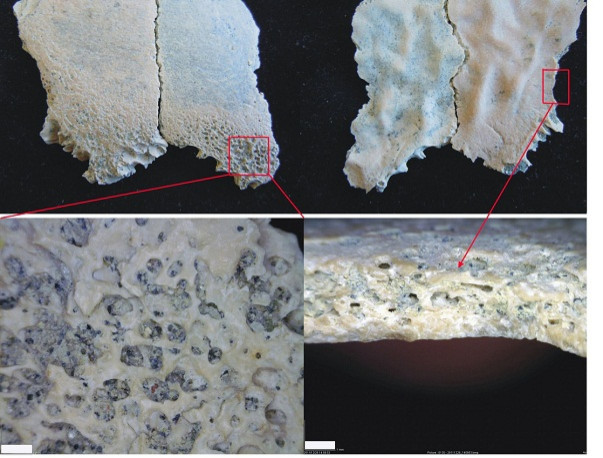Human Ancestors Began Regular Meat-Eating Earlier Than Thought

However you may feel about eating meat in the present day, the shift away from a completely vegetarian diet was an important factor in early human evolution.
Scientists aren’t sure exactly when our ancestors first began making meat a regular staple of their diets, but a new finding pegs the date earlier than previously thought.
An international team of researchers writing in the journal PLoS ONE say a 1.5-million skull fragment of a very young hominin is the earliest evidence of that early humans had come to rely on habitual meat consumption.
A “hominin” is a member of the tribe Hominini, a group that contains our species Homo sapiens and which split off from chimpanzees around 5 or 6 million years ago.
The ancient skull fragment in question belonged to a child under two years old, and was riddled with bone lesions. The lesions are characteristic of anemia caused by a nutritional deficiency, usually a lack of B-vitamins. Such kinds of anemia in children are usually a result of weaning.
The presence of the bone lesions “suggests the child from which the specimen derived possessed a digestive physiology adapted to the regular consumption of meat,” the authors wrote.
Either the child died because he or she wasn’t getting enough meat as they made the transition to solid foods, or its mother’s milk was nutritionally lacking for want of meat.
Due to the scarcity of fossils of very young children, “we have only scratched the surface in our understanding of nutrition and health in ancestral populations of the deep past,” the authors wrote.
The development of hunting and meat-eating is thought to have been key to the rise of the Homo lineage. Many ancient hominids were omnivorous, but another recent paper suggests that developing a taste for flesh may have been a turning point that allowed our ancestors to survive while another group of hominins, the genus Paranthropus, may have suffered from their decision to turn to a greener diet.
In a paper published in the journal Nature this past August, a group of researchers analyzed teeth from Paranthropus robustus and early Homo specimens, as well as the common ancestor of both, Australopithecus africanus. While Australopithecus was omnivorous, and Homo a confirmed heavy meat-eater, Paranthropus mostly went in for plants, a choice that may have made it difficult for these hominins to cope with seasonal changes.
So yes, while vegetarians may have the ethical high ground, carnivores can at least point to meat-eating’s track record of evolutionary success. But is what was good for the early hominin still good for Homo sapiens?
SOURCE: Dominguez-Rodrigo et al. “Earliest Porotic Hyperostosis on a 1.5-Million-Year-Old Hominin, Olduvai Gorge, Tanzania.” PLoS ONE 7: e46414, published online 3 October 2012.
© Copyright IBTimes 2024. All rights reserved.





















